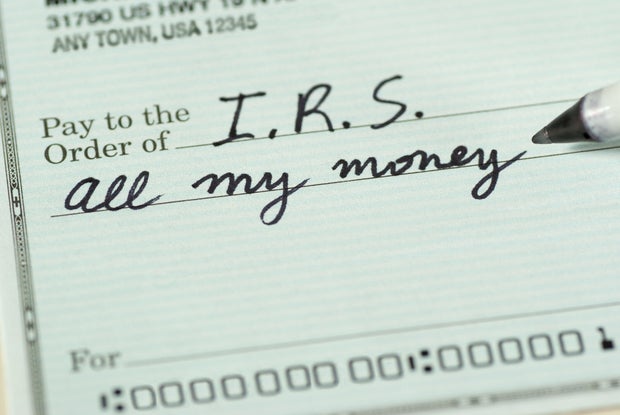How to negotiate tax debt with the IRS
The final tax filing deadline for 2024 taxes has passed, but what many taxpayers may not realize is that April 15 isn't just the deadline for filing a return. It's also the deadline to pay any tax debt owed to the Internal Revenue Service (IRS). If you've discovered you owe more than you can afford to pay immediately, that financial burden can feel overwhelming, especially considering that interest and penalties begin accumulating from day one. Luckily, the inability to pay your tax bill in full doesn't mean you're out of options.
While the IRS is known for its aggressive approach to dealing with tax debt, it also recognizes that helping taxpayers address their tax obligations can benefit both parties. As a result, the federal agency offers several programs that are designed specifically to help taxpayers resolve their tax debt. These options can reduce financial stress and provide a clear path toward tax compliance.
Acting quickly after the filing deadline is crucial, though. Ignoring your tax debt only compounds the problem. On the other hand, being proactive about negotiating a solution to your tax debt can keep what was once a manageable debt from turning into a financial crisis.
Get professional help with your IRS tax debt here.
How to negotiate tax debt with the IRS
The negotiation process with the IRS typically begins by contacting the federal agency directly or responding to an IRS notice. Before making contact with the agency, it's important to gather all relevant tax documents, prepare a detailed financial statement showing income and expenses and determine which resolution option (outlined below) is the right fit for your situation.
Before you reach out to the IRS, though, you'll want to determine which type of program makes the most sense for your situation. The IRS programs that may help you resolve your tax debt include:
Offer in Compromise
An Offer in Compromise allows you to settle your tax debt for less than the full amount owed, provided that paying the full amount would create financial hardship. However, not everyone qualifies for this type of settlement. The IRS considers factors like your income, expenses, asset equity and ability to pay when evaluating your offer, and you'll need to complete a detailed application and pay a non-refundable application fee (unless you meet low-income criteria) to try and get approved.
Speak to a tax relief expert about your options today.
Penalty abatement
The IRS may reduce or eliminate certain financial penalties on your unpaid taxes if you can demonstrate reasonable cause for not meeting your tax obligations. Some of the common qualifying reasons include natural disasters, serious illness or an inability to obtain necessary tax records.
Currently Not Collectible status
If paying your tax debt would prevent you from meeting basic living expenses, you can try to negotiate Currently Not Collectible status with the IRS. This won't reduce the total amount you owe, but it will temporarily halt collection activities (though interest and penalties continue to accrue). Note, though, that the IRS periodically reviews your financial situation after you're approved to determine whether you can begin payments.
Installment agreement
If you can't afford to pay your tax debt in full, the IRS may allow you to take advantage of a payment plan. While negotiating an installment agreement with the IRS won't result in paying less on your tax debt overall, it will allow you to pay your tax debt in monthly payments over time, typically up to 72 months. Keep in mind, though, that interest and penalties will continue to accrue while you're paying off the balance.
Should you use a tax relief company to negotiate your tax debt?
Tax relief companies employ enrolled agents, certified public accountants and tax attorneys who can offer valuable expertise in navigating IRS procedures and may identify resolution options you might overlook. They can also handle communications with the IRS, reducing stress and potential missteps. Whether or not you need this type of professional help, though, generally depends on the process and the complexity of your situation.
For example, if you have a small amount of debt with the IRS — let's say under $10,000 — and are confident in your ability to communicate with the agency, you may be able to set up a payment plan or request a penalty abatement on your own. The IRS website provides clear information and online tools to help guide you.
If you're facing an audit, significant tax debt or complex tax situations, though, this type of professional representation may be worth the investment. These professionals understand IRS procedures and can help you present your case more effectively. Just be sure to do your homework, check reviews and verify credentials before signing any contracts.
The bottom line
Owing the IRS money is stressful, but it doesn't have to wreck your finances or your peace of mind. The IRS offers multiple pathways to help you manage or reduce what you owe, and if you're proactive, you can often reach a workable solution without facing extreme collection measures.
Start by understanding the negotiation options available to you and figure out which one best fits your situation. But whether you take a DIY approach or enlist the help of a qualified tax professional, the most important thing is to take action. Ignoring the problem will only make it worse.






